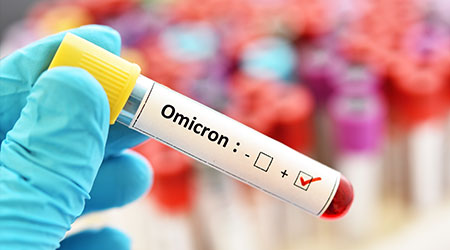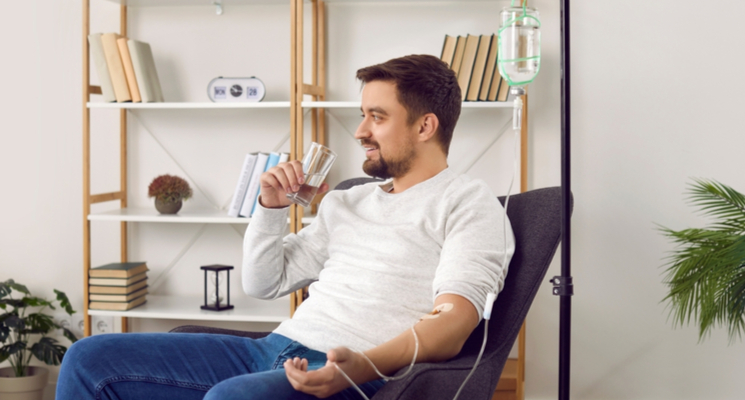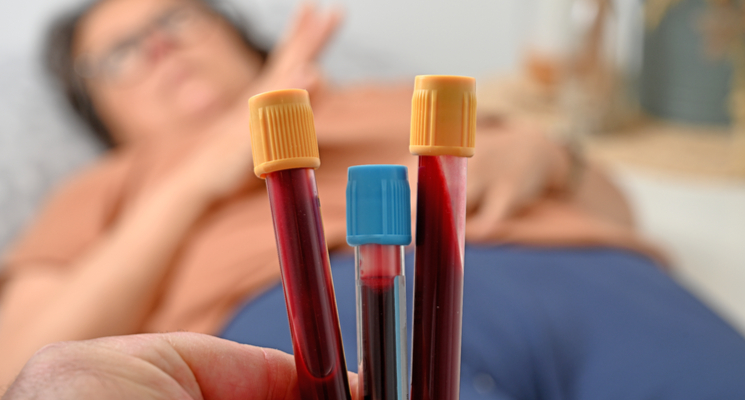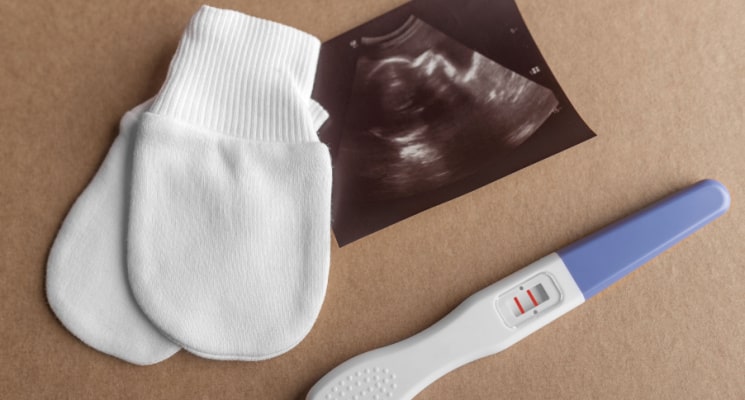The impact of the latest COVID variant, Omicron, is being felt in Dubai as well as other parts of the world. The WHO on November 26, 2021, indicated a new SARS-CoV-2 variant that later became known as Omicron. The UAE detected its first case of Omicron back in December 2021. As of February 7th, 2022, 128,621,662 PCR tests have been conducted whereas the confirmed cases of COVID-19 that have been reported in the UAE alone are 857,657. So far the total number of vaccine doses administered has reached 23,609,333.
The emergence of the new variant stirred concerns among health authorities since it’s highly transmissible and more likely to reinfect! Those experiencing the symptoms should immediately take a PCR test at home and quarantine themselves if tested positive.
What Is the Omicron Variant?
Much about this variant is still uncertain but experts around the world are beginning to understand it more and how it affects the vaccinated, unvaccinated, and those who had a prior COVID infection. This new COVID variant displays flu-like symptoms making it easier to mistake it for a common cold.
Be warned: This variant is highly contagious. The WHO also warned about its ability to spread which is faster than the Delta variant making it a high global risk!
Also called B.1.1.529, this variant was first detected in South Africa. Today, it’s the dominant COVID strain throughout the world and spreading like fire altering travel requirements just like other strains.
Common Symptoms of This Variant
The symptoms of Omicron are not much different from other COVID-19 strains. The initial reports from South Africa regarding the symptoms included lower back pain and reports from other countries included muscle ache (also known as myalgia).
In most cases, the symptoms appear early – around 3 days of catching the infection. Although this variant hasn’t caused as many deaths as other strains, it’s still hospitalizing people and some have lost the battle as well. Therefore, we still need to be vigilant.
The presence as well the severity of the symptoms may be affected by the patient’s vaccination status, age, health conditions, and prior infection history. The most common symptoms of this strain include:
Defining symptom: Cough and/or sore throat
Other top symptoms:
- Runny nose
- Congestion
- Fever and chills
- Back pain and muscle ache
- Fatigue
- Headache
- Nausea
Rare: Loss of smell and taste, Diarrhea, skin rash, irritated eyes, discoloration of fingers and toenails
Serious symptoms: Confusion, shortness of breath, loss of mobility/speech
A common tell-tale sign of this strain is body ache and night sweats. If you don’t have a sore throat, cough, or fever, but experienced body ache at night, that could be a sign of the infection. Take the safe route and schedule a rapid test at home in case you experience even the slightest of these symptoms.
Is Omicron Really Mild?
A flurry of reports across the world is painting a rosy view of this strain in comparison to its predecessors. Rumors say Omicron may be mild since it doesn’t affect the lungs that badly. Hospitalization and death toll is low as well. The word is that it’s no worse than a fleeting cold. So, if you just took a PCR test at home and found you’re positive, should you be casual about it? No!
This is a dangerous attitude. Experts suggest that the reason why people are experiencing the less severe form of COVID is that many people around the world are now vaccinated. Omicron may be less dangerous than Delta but its unfettered spread indicates it’s NOT mild at all.
The hosts of this strain are mostly people who are young, healthy, and vaccinated. Thus, calling this virus mild undersells the danger that it still poses. Even people who got booster shots are not completely safe.
How to Treat and Manage Symptoms at Home
If you are familiar with the latest COVID test requirements, conducting a test at home would immediately let you know if you’re infected. Fortunately, the isolation period for this variant is 5 days. The use of a facemask for an additional five days is mandatory though.
Treating Omicron is similar to its predecessors however, essentials in your basic medicine cabinet could be enough to manage your condition. Here are possible treatment options:
- Medication for Fever and Aches
Your best defense is an acetaminophen like Tylenol for fever, muscle ache, and headache. You may also take anti-inflammatory medication like Ibuprofen for symptom management.
- Remedies For Cough, Flu, and Sore Throat
OTC nasal decongestants and cough syrups can help with runny/stuffy nose and cough. Drink lukewarm water and soup for managing throat irritation. Steam also helps against dry cough. If you’re struggling with a mucus cough, ginger tea can provide relief. Drink plenty of water, juice, and electrolyte drinks (if possible) to stay hydrated.
- Monitor Your Oxygen Levels
Continue monitoring your oxygen levels throughout the quarantine period. If you experience shortness of breath, seek medical attention. In short, keep your antennas up and see a doctor promptly if this infection starts behaving nothing like a mild illness.
Disclaimer: The medical advice shared above is purely for informational/educational purposes and does not substitute medical consultation or advice provided by a healthcare professional. Always consult your healthcare provider before taking any medication.
Stay Safe: Omicron May Not Be the Last Variant
The Omicron strain isn’t over yet, its sub-variant called the stealth subvariant has been detected in 57 other countries including the United States. It’s a spinoff of the original. Research is in progress to learn more about this new strain.
Until we know more about this strain, it’s best to get a booster shot to keep your guard up against this current strain and any upcoming ones. If you feel you have the symptoms, you can always take a PCR test at home in Dubai and quarantine accordingly.
In desperate times like these, Service Market can come to your rescue and help you find a DHA-certified clinic in Dubai for a rapid test without leaving your home.







